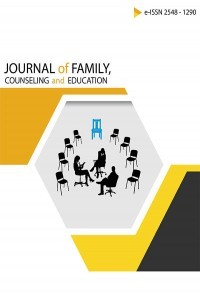The Adaptation of Lifelong Learning Scale into Turkish Culture
The Adaptation of Lifelong Learning Scale into Turkish Culture
The purpose of the study was to analyze the reliability and validity of the Lifelong Learning Scale (WielkLLS) which was developed by Wielkiewicz and Meuwissen (2014) and adapt the scale into Turkish culture. First of all the English form was translated intoTurkish by 5 English experts and translated into English. Then, they translated into English again for language validation. Another study was done for language validation. A piloting section was happened with ELT students at Sakarya University. First, the English version of the scale was applied to the students and then they did the same for the Turkish version of the scale. The correlation between two applications was found .81. The study was done with 399 candidate teacher students who are studying at Sakarya University Education Faculty. The reliability of the scale was found Cronbach’s alpha .78. Confirmatory factory analysis of the 16-item loaded one factor and unidimensional scale was done (X²= 277.09, DF= 64, RMSEA= .091, NFI= .92, NNFI= .93, CFI= .94, IFI= .94, SRMR= .061). All findings shows that the scale is valid and realiable enough to measure the lifelong learning tendencies of students in Turkish culture.
Keywords:
Lifelong Learning confirmatory factor analysis, validity,
___
- Furr, R. M., & Bacharach, V. R. (2013). Psychometrics: an introduction. Sage.
- Helterbran, V. R. (2001). Lifelong learning: A qualitative study of adult self-direction, motivation to learn, and self-efficacy in a learning society.UMI Dissertation Services.
- Lamb, F.F., Brady E. M. & Lohman, C. (2009) Lifelong resiliency learning: A strength-based synergy for gerontological social work. Journal of Gerontological Social Work, 52(7), 713-728. DOI:10.1080/01634370802716216
- Love, D. (2011). Lifelong learning: Characteristics, skills, and activities for a business college curriculum. Journal of Education for Business, 86(3), 155-162. DOI:10.1080/08832323.2010.492050
- Luka, I., & Sungsari, S. (2015). Lifelong learning strategies and practice in Latvia and
- Thailand. Policy Futures in Education, 1478210315571222.
- Murray, H. (2015). Lifelong learning in the twenty-first century: An investigation of the interrelationships between self-directed learning and lifelong learning. Doctoral
- dissertation, Union Institute And University.
- Norman, A. E. (2012). Librarians' leadership for lifelong learning. Public Library Quarterly, 31(2), 91-140. DOI: 10.1080/01616846.2012.684577
- Seta, L., Kukulska-Hulme, A. & Arrigo M. (2014). What have we learnt about mobile Life Long Learning (mLLL). International Journal of Lifelong Education, 33(2), 161-182. DOI:10.1080/02601370.2013.831954
- Simson S., Thompson, E. & Wilson L. B.(2002). Who is teaching lifelong learners?. Gerontology & Geriatrics Education, 22(1), 31-43. DOI:10.1300/J021v22n01_03
- Weinstein, L. B. (2004). Lifelong learning benefits older adults, activities. Adaptation & Aging, 28(4), 1-12. DOI: 10.1300/J016v28n04_01
- Wielkiewicz, R. M., & Meuwissen, A. S. (2014).A lifelong learning scale for research and evaluation of teaching and curricular effectiveness. Teaching of Psychology, 41(3),
- 220-227.
- Yayın Aralığı: Yılda 2 Sayı
- Başlangıç: 2016
- Yayıncı: Eyüp ÇELİK
